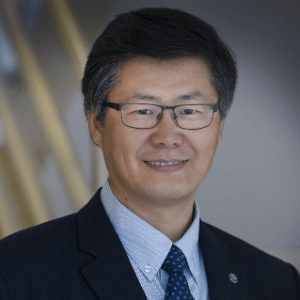Title : Green solutions for marine oil spill response
Abstract:
The growing offshore oil exploration and transportation activities have raised mounting public concerns over potential offshore oil spill incidents. Therefore, there is an urgent call to develop efficient and environmentally sound oil spill response technologies. Bioremediation, the widely acclaimed green solution to oil pollutions, face challenges from lacking potent oil degrading strains and poor bioavailability of hydrocarbons. Such problems could be exacerbated in extreme environments (e.g., low temperature and high salinity). The production and industrial application of biosurfactants have flourished in the past few years. They are a group of surface-active compounds produced by microbes during their growth. Biosurfactants could reduce the interfacial tension between oil and water, and enhance the emulsification, solubilization, and dispersion of spilled oils when assembled as micelles in the water environment. With an increased bioavailability of spilled oils, the oil removal efficiency could be enhanced.
This presentation features the recent development of biosurfactant based biotechnologies for improved oil spill response. Economic biosurfactant production by marine-originated strains were investigated using wastes material as low-cost substrate. Immobilized robust biocatalyst was employed to boost biosurfactant production rate further. Biosurfactant-based oil spill treating agents, including biodispersants, bioherders, and biodemulsifiers, have been developed via the rational selection of biosurfactant candidates with desired physical and chemical properties. The effects and efficacy of the developed biosurfactant based oil spill treating agents as oil spill response tools were assessed. Herein, we took a deep dive into the assessment of the biosurfactant products and their environmental performance to underpin the development of biosurfactant based remediation technologies. The decontamination mechanism of biosurfactants was probed and the pivotal role of the diverse structures of biosurfactants was identified, which could result in variations in their surface activity and target specificity. The underlying mechanisms concluded in this study could inspire the forthcoming research effects in the advanced environmental application of biosurfactants.
Audience take away:
- The study showcases the power of biosurfactants as effective oil spill treating agents. The result is expected to offer valuable insights for developing biosurfactant enhanced bioremediation technologies and extend the toolbox that can be used for oil spill response.
- This study also deepens the understanding of the mechanism of biosurfactant enhanced remediation technologies, and fuels research efforts to screen and produce potent biosurfactant candidates for desired environmental applications.



